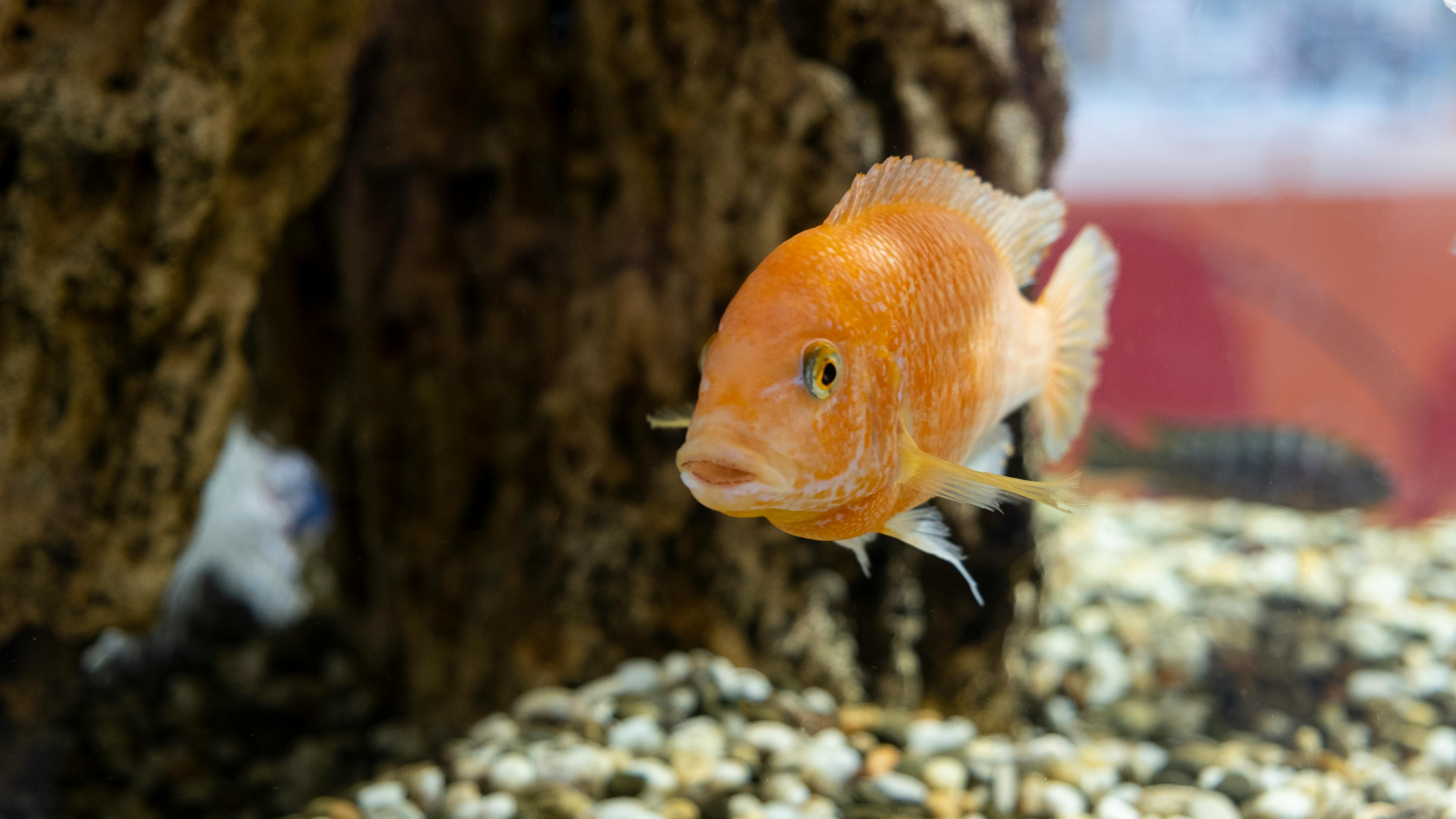
Essential Guide to the Best Betta Fish Foods for Healthy Growth in 2025
Choosing the right diet for your betta fish is essential for ensuring their health, vitality, and growth. Betta fish are not only known for their stunning colors and graceful movements, but they are also sensitive creatures that thrive with proper nutrition. A well-balanced diet can lead to vibrant colors, improved health, and optimal growth. Understanding what constitutes the best betta fish food will equip you to make informed decisions that benefit your pet in the long run. This article explores the best five betta fish foods available in 2025, highlighting their nutritional benefits and how they cater to the dietary requirements of bettas.
Here's what you can expect to learn:
- The top betta fish foods and their unique benefits.
- Insights into nutritional value and feeding practices for bettas.
- Essential tips for maintaining a balanced diet for your fish.
- Practical advice on feeding frequency and food options.
Let’s dive in!
Top 5 Betta Fish Foods for Optimal Growth
1. High-Quality Betta Fish Pellets
High-quality betta fish pellets are a staple in betta nutrition for a reason. They are often packed with essential nutrients, including proteins, vitamins, and minerals that promote healthy growth. Brands such as Hikari and Nutrabalance are well-regarded for their formulations that cater specifically to the dietary needs of bettas.
One notable feature of these pellets is their protein-rich content, which supports muscle development and overall health. Additionally, they often include antioxidants to boost the immune system and promote vibrant colors in your fish.
Proper feeding frequency is crucial. Bettas should typically be fed 2-3 pellets once or twice daily, being careful not to overfeed. This feeding method helps maintain a balanced diet while preventing common health issues related to overfeeding.
2. Premium Betta Fish Flakes
Flakes are another excellent option for your betta's diet, especially if you aim to introduce variety. Premium betta fish flakes, like those from TetraBetta Plus, provide a well-rounded nutritional profile. They are designed to float, making them easily accessible to bettas, and they are often fortified with essential vitamins and minerals.
When using flakes, it’s best to crush them slightly before feeding them to your betta, especially for younger fish or less aggressive eaters. This method can help them consume the food without the risk of choking or swallowing too much at once.
Rotating between pellets and flakes can prevent dietary boredom and ensure that your betta receives a diverse range of nutrients, fulfilling their dietary preferences.
3. Freeze-Dried Betta Fish Food
Freeze-dried food is an excellent choice for enriching your betta's diet. Foods such as freeze-dried bloodworms or brine shrimp provide high protein content and mimic the betta's natural diet. This type of food can be an occasional treat that adds variety and encourages natural hunting instincts.
While freeze-dried options offer many benefits, they should be used sparingly. It's recommended to mix freeze-dried food with other types of betta fish food to avoid any health issues from over-dependence on one food type. Consider soaking freeze-dried food in water before feeding to ensure it's soft and easier for your fish to digest.
4. Frozen Food for Bettas
Similar to freeze-dried foods, frozen options like frozen brine shrimp or daphnia can offer a protein-rich addition to your betta's diet. These foods provide essential amino acids and nutrients that enhance your fish's overall health. It's important to serve frozen food in moderation, ideally a couple of times a week, to maintain a well-rounded diet.
When using frozen food, ensure you only thaw what your betta will eat within a few minutes to prevent spoilage and maintain freshness. This approach not only supports optimal health but also encourages more natural feeding behaviors.
5. Live Food for Betta Fish
Live food is regarded as the ultimate diet for betta fish, as it stimulates natural hunting instincts. Options such as live brine shrimp and mosquito larvae are excellent sources of protein and essential nutrients. However, care must be taken with sourcing live food to ensure it’s free of disease and contaminants.
Integrating live food into your betta's diet is a fantastic way to boost their health and vibrancy. It’s best to introduce live food gradually to avoid digestive issues, and it should be given as an occasional treat along with other balanced options.
Understanding Betta Fish Dietary Needs
Every betta owner should be familiar with the specific dietary requirements of their fish to provide the best care possible. Betta fish require a diet that is high in protein, as they are carnivorous by nature. Protein-rich foods should make up the majority of their diet, supplemented by vegetable materials to provide necessary fibers.
The typical needs include:
- High protein content (30-40%)
- Balanced vitamins and minerals
- Variety to prevent boredom and encourage natural behaviors
Understanding these nutritional needs helps in selecting the most appropriate foods, ultimately leading to happier, healthier bettas.
Practical Tips for Feeding Your Betta Fish
Feeding Schedule for Bettas
Consistency in feeding times is vital for maintaining a healthy diet. Bettas can be fed 2-3 times daily, with small amounts to avoid overfeeding. Signs of overfeeding can include bloating, lethargy, and uneaten food settling at the bottom of the tank. Monitor their behavior and adjust feeding habits as necessary.
Young bettas or baby bettas may have different needs, often requiring smaller, more frequent meals to promote healthy growth. It’s essential to tailor your approach based on their age and activity level.
Importance of Variety in Betta Diets
Introducing variety in food options is crucial for a balanced diet. Not only does it prevent boredom, but it also ensures that bettas receive the full spectrum of nutrients they require. Mixing pellets, flakes, frozen options, and occasional live treats helps achieve this variety.
Best Practices for Betta Food Storage
Proper food storage is essential to ensure high-quality nutrition for your bettas. Pellets and flakes should be kept in a cool, dry place in a sealed container to maintain freshness. Live and frozen foods should be stored per the packaging instructions to prevent spoilage and ensure the safety of your aquatic friends.

Recognizing Healthy Feeding Habits in Betta Fish
Understanding your betta's feeding habits can offer insights into their health and well-being. Signs of a healthy betta include active swimming, enthusiasm during feeding, and, of course, vibrant colors. Monitor their behavior closely—any sudden changes could indicate stress or health concerns related to diet.
Common Health Issues Related to Diet
While proper nutrition plays a crucial role in the health of betta fish, poor feeding habits can lead to common health issues. Conditions such as swim bladder disease, fin rot, and obesity can arise from poor diet or overfeeding. Being proactive and maintaining nutritional balance is essential for preventing these health concerns.
Conclusion: Best Practices for Betta Fish Nutrition
Choosing the best betta fish food involves a thoughtful approach to their dietary needs, preferences, and health. Implementing a well-rounded diet featuring high-quality pellets, premium flakes, freeze-dried and frozen foods, and the occasional live treat can lead to thriving bettas. Remember to monitor feeding schedules and storage practices to maintain food quality.
With the right nutrients and a bit of attention to their habits, you can ensure that your betta fish grow healthy and vibrant. Regularly assess their dietary choices, and don't hesitate to consult resources and experts if you have questions about your fish's nutrition.
